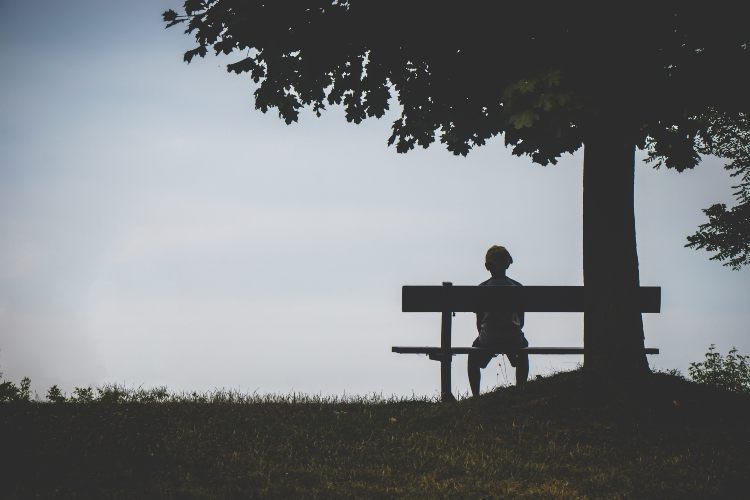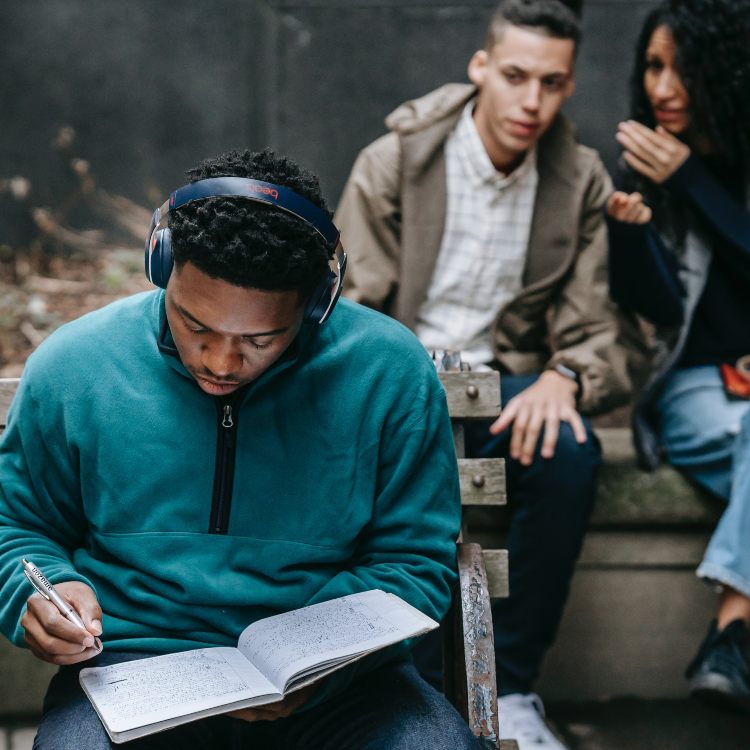


Social Anxiety Treatment
D’Amore Mental Health specializes in diagnosing and treating social anxiety. Dealing with any level of social anxiety can be debilitating, resulting in a person feeling extreme fear in any social setting.
Let our highly trained staff at D’Amore Mental Health Center in Orange County, CA, alleviate your anxiety, working with you to create a treatment plan that is tailored to your needs.

Social anxiety disorder is sometimes referred to as a “social phobia,” and it is a type of anxiety disorder that causes people to feel overwhelming panic when they are in social gatherings. While feeling nervous in a social interaction is normal, the anxiety and fear that arise with social anxiety disorder can disrupt someone’s life.
Social anxiety can manifest in a lot of different ways. Signs can be exhibited either physically and/or emotionally.
Some emotional signs and symptoms of social anxiety disorder are:
Physical symptoms and signs of social anxiety include:
Everyday encounters can be difficult for those with intense anxiety. If you believe you suffer from a social anxiety disorder, you may have difficulties with the following situations:
If you suffer from social anxiety, you may not feel social anxiety symptoms in all situations. You can have limited or selective anxiety. If your case is more extreme, you will experience symptoms in all social situations.
Your symptoms can also change as you get older and flare up if you’re under a lot of stress. Avoiding social situations can help you temporarily feel better, but if you don’t seek the proper treatment, your social anxiety will likely continue long-term.
Social anxiety disorder can occur from a combination of environmental and genetic factors.
Some causes include:

The direct cause of a social anxiety disorder isn’t known. In families where multiple people have anxiety disorders, it is unclear if that is due to genetics or learned behavioral traits.
There are additional factors that may increase the likelihood of developing social anxiety:

If you don’t seek treatment for social anxiety, it can interfere with your daily life and affect relationships. It can also cause:

You don’t have to struggle with social anxiety alone. Our staff at D’Amore is here to help you.
D’Amore is a licensed Orange County residential psychiatric facility that will work with you to create a treatment plan for your social anxiety disorder experience. We will work as a team to understand the causes of your social anxiety and establish a plan of action that will address the symptoms you feel while remedying the issue.
Our peaceful and serene environment will bring you relief as we work on the path to recovery.
When you arrive at our treatment center, our staff will take down your environmental, genetic, medical, nutritional, and psychological history. All of these aspects help us personalize your treatment plan to best suit your needs.
With a social anxiety disorder, there is no medical test that we can run to check if you test positive or negative. Based on your symptoms and aspects of your history, our staff will diagnose social anxiety based on that.
The treatment provided varies from person to person. A person may only need one type of treatment, while others may need multiple treatment options.
Treatment options include:
Cognitive Behavioral Therapy: This is a commonly used type of therapy that can be done individually or in a group. In this practice, you will learn how to acknowledge and alter negative thoughts you have about yourself. You will also develop practices and skills to help you gain confidence.
Exposure-Based Therapy: With this type of therapy, you gradually start putting yourself into situations that cause you to fear. You learn how to cope with your fears and develop confidence. This may also include role-playing or training to help you practice interacting with others before you head out into the real world.
Medications: Depending upon the severity of your social anxiety, you may be prescribed a medication. To help deal with side effects, you will likely be started on a low dose.
You don’t have to go through your life suffering from social anxiety. Our staff is here to help guide you through the process and create a treatment plan that works for you.
We are available 24 hours a day, seven days a week.
Social anxiety disorder is a mental health condition in which social interactions cause irrational anxiety. Those with social anxiety disorder experience irrational anxiety, fear, self-consciousness, and embarrassment during everyday social interactions. The symptoms may include excessive fear of being judged, embarrassment, or humiliation, or worrying about offending others.
In order to overcome social anxiety, there are several options available, such as talk therapy or medication. These options will increase your confidence and improve your ability to interact with others. By practicing public speaking and using your support system, you can overcome social anxiety.
Negative experiences are typically the cause of social anxiety. Those who experience teasing, bullying, rejection, ridicule, or humiliation may be more likely to develop social anxiety disorder. This disorder may also be associated with negative life events, such as family conflict, trauma, or abuse.
Having a friend with social anxiety can make it difficult to have a social life of your own. Recovering from social anxiety takes time. Recognizing your friend’s small steps and progress is essential. Be sure to praise these small achievements with positive feedback. Avoid becoming frustrated with them or losing your temper. You shouldn’t suggest that your friend relax or talk more. Don’t expect more from them than they can give and try to understand how social anxiety can affect their lives.

Jamie Mantel is a Licensed Marriage and Family Therapist, with a Psy.D. in psychology. Jamie has worked for non-profits for over 20 years working with agencies, as well as her private practice in Huntington Beach, California.




















